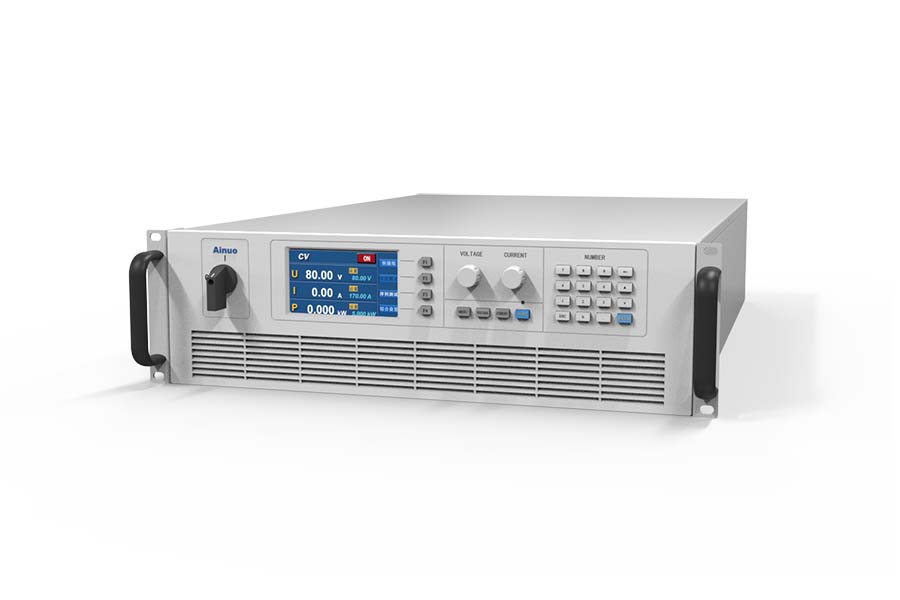A programmable DC power supply is a critical instrument in modern labs, offering precision, flexibility, and automation in power delivery. Unlike fixed power supplies, programmable units allow dynamic adjustments of voltage and current, making them indispensable across electronics, energy research, automotive testing, and more. Below is an in-depth exploration of their applications.

1. Electronics Design & Testing
Circuit Prototyping & Validation
Engineers use programmable power supplies to emulate real-world power conditions during PCB development.
Example: Testing a 5V microcontroller board while gradually increasing voltage to check for failure thresholds.
Component Stress Testing
Evaluates diodes, transistors, ICs, and passive components under extreme conditions (e.g., overvoltage, high current).
Example: Applying reverse voltage stress to a Zener diode to verify its breakdown characteristics.
Power Sequencing & Multi-Rail Testing
Many digital systems (FPGAs, SoCs) require controlled power-up sequences (e.g., core voltage before I/O).
Programmable supplies can automate multi-rail sequencing via software (LabVIEW, Python).
2. Battery & Energy Storage Research
Battery Charge/Discharge Cycling
Simulates real-world usage by cycling between charge & discharge modes while logging data.
Example: Testing Li-ion battery degradation over 500+ cycles at different C-rates.
Battery Emulation for Device Testing
Instead of using real batteries, engineers mimic battery behavior (e.g., voltage sag under load).
Example: Testing a portable medical device under low-battery conditions.
Supercapacitor & Fuel Cell Research
Measures charge retention, ESR (Equivalent Series Resistance), and efficiency in supercapacitors.
Used in hydrogen fuel cell experiments to control input power for electrolysis.
3. Semiconductor & Advanced Materials Research
LED & Laser Diode Characterization
Tests forward voltage, luminous intensity, and thermal effects in LEDs.
Example: Measuring efficiency drop in high-power LEDs at elevated temperatures.
Solar Cell & Photovoltaic Testing
Simulates varying sunlight conditions by sweeping voltage/current (IV curve tracing).
Example: Determining the maximum power point (MPP) of a solar panel.
Nanotechnology & Thin-Film Research
Used in sputtering, electrodeposition, and MEMS fabrication for precise power control.
4. Automotive & Aerospace Applications
Electric Vehicle (EV) Component Testing
Validates on-board chargers, DC-DC converters, and BMS (Battery Management Systems).
Example: Testing a 48V-to-12V converter under dynamic load conditions.
Aircraft Avionics & MIL-STD Compliance
Simulates power surges, drops, and noise to ensure compliance with DO-160 (avionics standards).
Electric Motor & Actuator Testing
Evaluates brushless DC (BLDC) motors under varying PWM-driven loads.
5. Telecommunications & IoT Device Validation
RF Power Amplifier Linearity Testing
Ensures minimal distortion in RF circuits by supplying clean DC power.
Example: Testing a 5G power amplifier’s efficiency at different bias voltages.
Low-Power IoT & Wearable Testing
Measures energy consumption in Bluetooth/Wi-Fi modules for battery life optimization.
Example: Current profiling a smartwatch in sleep vs. active mode.
6. Industrial & Quality Assurance (QA) Testing
Burn-in & Accelerated Life Testing
Stresses devices at elevated voltages/temperatures to identify early failures (HTOL testing).
Automated Production Testing
Integrated into ATE (Automated Test Equipment) for high-throughput validation.
7. Academic & Physics Research
Plasma & High-Voltage Experiments
Used in fusion research, plasma thrusters, and dielectric breakdown studies.
Electromagnetism & Superconductivity
Powers solenoids, Helmholtz coils, and superconducting magnet experiments.
Key Advantages of Programmable DC Power Supplies
High Precision – Microvolt/microamp resolution for sensitive experiments.
Dynamic Control – Simulates transients, ripples, and pulsed loads.
Remote Automation – Supports SCPI commands, LabVIEW, Python, MATLAB integration.
Safety Protections – OVP, OCP, OTP (Over-Temperature Protection) for risk mitigation.
Conclusion
From prototyping circuits to validating EV components, programmable DC power supplies are essential in R&D, manufacturing, and academic labs. Their flexibility, precision, and programmability make them superior to traditional power sources.


